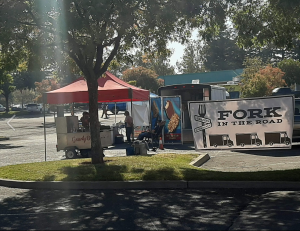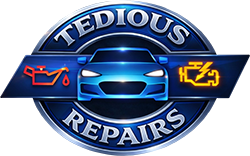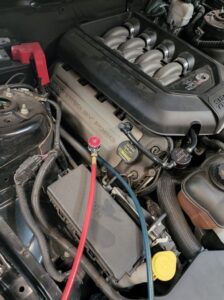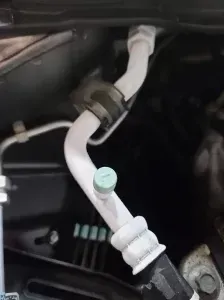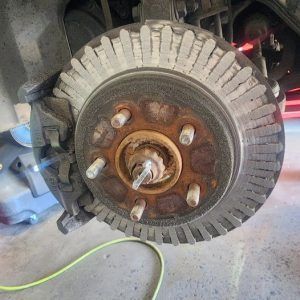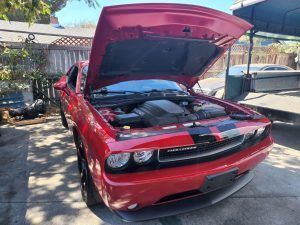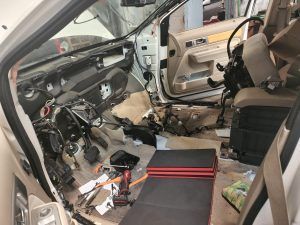The Essential Auto Maintenance Checklist For Chico Drivers
Are you a Chico driver looking to keep your car running smoothly and avoid costly repairs? Then you’ve come to the right place! In this article, we will provide you with a comprehensive auto maintenance checklist specifically tailored for Chico drivers.
By following this checklist, you can ensure that your vehicle remains in top condition and avoid any unexpected breakdowns on the road.
Regular oil changes are the foundation of a well-maintained car, and we’ll explain why they are so important.
We’ll also discuss the benefits of tire rotations and inspections, which can extend the lifespan of your tires and improve your vehicle’s performance.
Brake system maintenance is crucial for your safety, and we’ll outline the key steps you need to take to keep your brakes in optimal condition.
Additionally, we’ll delve into fluid checks and replacements, as well as battery and electrical system inspections.
These often overlooked maintenance tasks can save you from expensive repairs down the line and ensure that your car is always ready to hit the road.
So, buckle up and get ready to become an expert in auto maintenance!
Key Takeaways
- Regular oil changes, especially with synthetic oil, are important for car maintenance
- Tire maintenance, including rotations and inspections, improves tire performance and safety
- Regular brake system maintenance, including brake pad replacement and brake fluid flush, prevents damage and failure
- Coolant and transmission fluid maintenance, such as monitoring levels and flushing/replacement, is recommended for proper engine function
Regular Oil Changes
You don’t want to neglect regular oil changes if you want to keep your car running smoothly and avoid costly repairs down the road. Regular oil changes are essential for maintaining the health and longevity of your vehicle’s engine. One of the main benefits of using synthetic oil is that it provides better protection and lubrication for your engine, reducing friction and wear. Synthetic oil also has a longer lifespan, meaning you won’t have to change it as frequently as conventional oil.
Knowing when it’s time for an oil change is crucial. Some signs that indicate it’s time for a change include a low oil level, dark and dirty oil, engine noise or knocking sounds, and a strong odor of burning oil. If you notice any of these signs, it’s important to schedule an oil change as soon as possible.
Transitioning into the next section about tire rotations and inspections, proper maintenance goes beyond just oil changes. Tire rotations and inspections are equally important for the overall performance and safety of your vehicle.
Tire Rotations and Inspections
Regular tire rotations and inspections are crucial to ensure optimal performance and longevity of your vehicle’s tires. Here are four important reasons why you should prioritize tire rotations and inspections:
- Tire Pressure: Regular rotations and inspections help maintain proper tire pressure. Properly inflated tires not only improve fuel efficiency but also enhance overall handling and safety.
- Even Tread Wear: Tire rotations ensure that your tires wear evenly. By moving the tires from one position to another, you distribute the wear and tear more evenly across all tires. This helps extend their lifespan and saves you money in the long run.
- Wheel Alignment: Tire rotations also provide an opportunity to check your vehicle’s wheel alignment. Proper wheel alignment ensures that your tires make optimal contact with the road, improving handling and preventing premature tire wear.
- Early Detection of Issues: Regular inspections during tire rotations allow for the early detection of potential problems. This includes identifying signs of uneven wear, bulges, or punctures. Addressing these issues promptly can prevent more costly and dangerous tire failures down the road.
With tire rotations and inspections checked off your maintenance list, it’s time to move on to the next crucial aspect of auto care – brake system maintenance.
Brake System Maintenance
Ensuring optimal performance and longevity, proper brake system maintenance is crucial for the safety and smooth operation of your vehicle. To keep your brakes in top condition, regular brake pad replacement and brake fluid flush are essential.
Brake pads are a critical component of your vehicle’s braking system. Over time, they wear down and need to be replaced. By regularly inspecting and replacing worn brake pads, you can prevent damage to other brake components, such as the rotors, and ensure efficient braking performance. It is recommended to have your brake pads inspected every 12,000 to 15,000 miles and replaced as needed.
Another important aspect of brake system maintenance is the brake fluid flush. Brake fluid plays a vital role in transferring the force from your foot on the brake pedal to the brake pads. Over time, brake fluid can become contaminated with moisture and debris, which can lead to brake system failure. It is recommended to have your brake fluid flushed every 30,000 to 50,000 miles, or as advised by your vehicle’s manufacturer.
By regularly inspecting and replacing brake pads and flushing the brake fluid, you can ensure the reliability and safety of your vehicle’s brake system. In the next section, we will discuss the importance of fluid checks and replacements in maintaining your vehicle’s overall performance.
Fluid Checks and Replacements
To maintain optimal vehicle performance and prevent potential issues, it’s crucial to regularly check and replace the fluids in your car.
One important fluid to monitor is the coolant level. Coolant is responsible for regulating the temperature of your engine and preventing it from overheating. Low coolant levels can lead to engine damage and overheating, so it’s important to check it regularly and top it up if necessary.
Another essential fluid check is the transmission fluid. This fluid is responsible for lubricating the transmission and ensuring smooth gear shifts. Over time, transmission fluid can become dirty or contaminated, affecting the performance of your transmission. It’s recommended to flush and replace the transmission fluid every 30,000 to 60,000 miles, depending on your vehicle’s manufacturer recommendations.
By regularly monitoring the coolant level and performing a transmission fluid flush, you can ensure that your car’s cooling system and transmission are working optimally. These fluid checks and replacements are vital for maintaining the longevity and reliability of your vehicle.
Moving on to the next section about battery and electrical system inspections, it’s important to ensure that your car’s electrical components are in good working condition to avoid any unexpected breakdowns or starting issues.
Battery and Electrical System Inspections
Don’t let unexpected breakdowns or starting issues ruin your driving experience – make sure your car’s battery and electrical system are in top-notch condition.
Your car’s battery is essential for starting the engine and powering various electrical components. To ensure optimal battery life, it’s important to regularly inspect and maintain it. Start by checking the battery terminals for any corrosion or loose connections. Clean the terminals if necessary and tighten them securely.
Next, inspect the battery itself for any signs of damage or leakage. If you notice any issues, it’s best to have it replaced promptly.
In addition to the battery, it’s crucial to inspect the charging system. The charging system is responsible for replenishing the battery’s charge while the engine is running. A malfunctioning charging system can lead to a drained battery and potential starting issues.
During a charging system check, the technician will inspect the alternator, voltage regulator, and other components. They will also measure the battery’s voltage and check the charging rate. If any issues are detected, the necessary repairs or replacements can be done to ensure proper charging.
By regularly inspecting and maintaining your car’s battery and electrical system, you can prevent unexpected breakdowns and starting issues. So, don’t neglect these crucial components and enjoy a worry-free driving experience.
Frequently Asked Questions
How often should I replace my windshield wipers?
Replace your windshield wipers every 6-12 months, or as soon as you notice streaking or skipping. To choose the right wipers, consider your vehicle’s make and model, climate, and the type of wiper blades. Regularly clean and maintain them to ensure optimal performance.
What are some signs that my car’s air conditioning system needs maintenance?
If your car’s AC system is blowing warm air, making strange noises, or emitting strange smells, it’s a sign of issues. Regular AC maintenance is important to ensure optimal performance and prevent costly repairs.
How often should I have my car’s suspension system inspected?
You should have your car’s suspension system inspected at least once a year. Signs of suspension system damage include uneven tire wear, a bumpy ride, and difficulty steering or controlling your vehicle.
Are there any specific types of coolant that I should use for my car?
To ensure optimal performance, use the coolant recommended by your car’s manufacturer. For motor oil, different cars require different types, so refer to your owner’s manual. Checking and maintaining tire pressure is crucial for safety and fuel efficiency.
How often should I replace my car’s cabin air filter?
To improve the air quality in your car, replace the cabin air filter every 12,000 to 15,000 miles or as recommended by your car’s manufacturer. Cleaning the air ducts should be done annually.
Conclusion
So there you have it, Chico drivers! By following this essential auto maintenance checklist, you can ensure that your vehicle stays in top condition and continues to perform at its best.
Regular oil changes, tire rotations, brake system maintenance, fluid checks, and battery and electrical system inspections are all crucial aspects of keeping your car running smoothly and avoiding any unexpected breakdowns or costly repairs.
Remember, taking care of your vehicle isn’t just important for its longevity, but also for your safety on the road. Stay proactive and stay on top of your auto maintenance!
